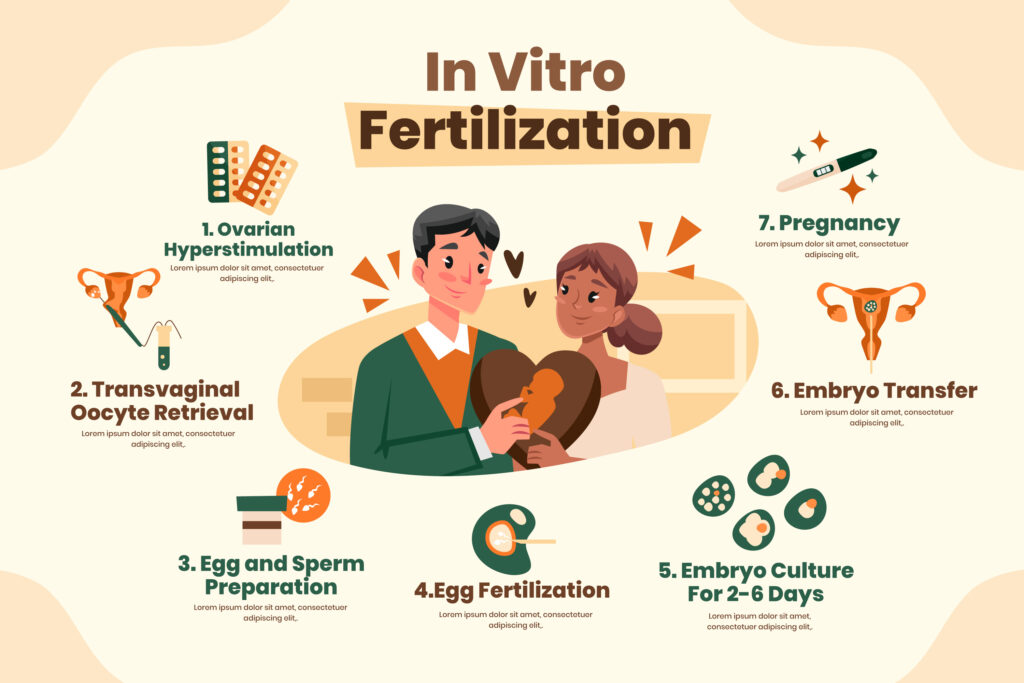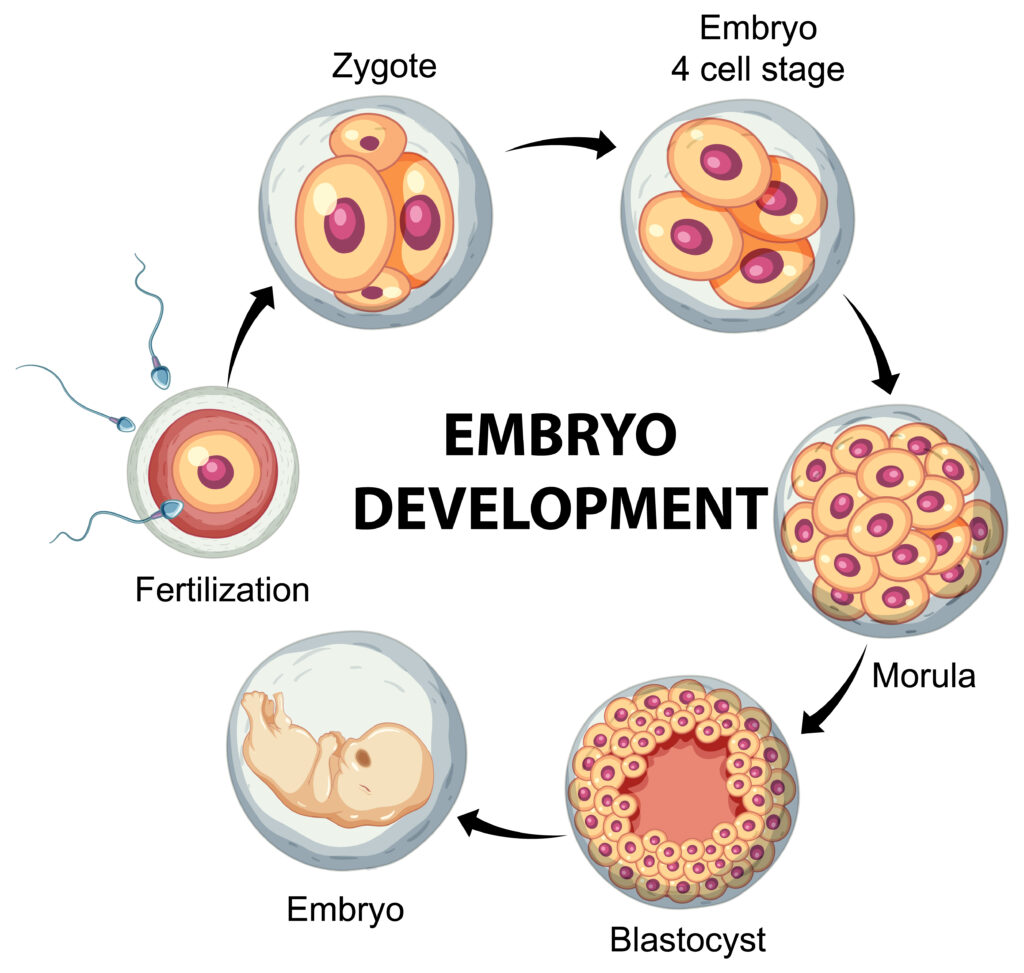Table of Contents
Introduction to Advanced IVF Treatment in India

Advanced IVF treatment in India offers hope for couples struggling with infertility. This cutting-edge procedure utilizes advanced techniques and technologies to increase the chances of a successful pregnancy. With experienced fertility specialists and state-of-the-art facilities, India has become a popular destination for couples seeking advanced IVF treatment.
The process of advanced IVF treatment involves several steps that are carefully designed to maximize the chances of conception. It begins with an initial consultation where the couple’s medical history is evaluated, and any underlying causes of infertility are identified. This step is crucial as it helps the fertility specialist determine the most appropriate course of treatment.
Once the initial evaluation is complete, the next step involves ovarian stimulation. This is done through hormonal medications that stimulate the ovaries to produce multiple eggs. Regular monitoring and ultrasound examinations are conducted during this phase to assess follicular growth and hormone levels.
When the eggs have reached maturity, they are retrieved using a minimally invasive procedure called transvaginal ultrasound-guided egg retrieval. This procedure ensures minimal discomfort for the patient while maximizing egg quality and quantity.
 After the eggs have been retrieved, they are fertilized in a laboratory setting using either conventional IVF or intracytoplasmic sperm injection (ICSI). In conventional IVF, a high-quality sperm sample is combined with the eggs in a culture dish, allowing fertilization to occur naturally. On the other hand, ICSI involves injecting a single sperm directly into each mature egg to ensure fertilization.
After the eggs have been retrieved, they are fertilized in a laboratory setting using either conventional IVF or intracytoplasmic sperm injection (ICSI). In conventional IVF, a high-quality sperm sample is combined with the eggs in a culture dish, allowing fertilization to occur naturally. On the other hand, ICSI involves injecting a single sperm directly into each mature egg to ensure fertilization.
Following fertilization, embryo development takes place in a controlled environment within an incubator. The embryos are closely monitored by embryologists who assess their quality and select the most viable ones for transfer.

Finally, embryo transfer is performed under ultrasound guidance, where one or more embryos are transferred into the woman’s uterus using a thin catheter. Any remaining good-quality embryos can be cryopreserved for future use.
Throughout this entire process, the expertise of fertility specialists and the use of advanced technologies play a crucial role in ensuring the success of the treatment. With their extensive knowledge and experience, these specialists can tailor the treatment plan according to each couple’s unique needs, increasing the chances of a successful pregnancy.
Cost of IVF Treatment in India
The cost of IVF treatment in India can vary depending on various factors. To understand the breakdown of IVF treatment costs, which is generally 3000 USD to 5000 USD, it is important to consider the different components that contribute to the overall expenses.
The first component is the basic IVF procedure itself. This includes the initial consultation, fertility testing, ovarian stimulation medications, egg retrieval, sperm collection and preparation, fertilization in a laboratory setting, embryo culture, and embryo transfer. These steps are crucial for a successful IVF treatment and account for a significant portion of the total cost.
In addition to the basic procedure, there are other factors that can impact the cost of IVF treatment in India. One such factor is the need for additional procedures or techniques. For example, couples may require preimplantation genetic testing (PGT) to screen embryos for genetic disorders or chromosomal abnormalities. PGT can add an extra cost to the overall treatment expenses.
Another factor that can affect the cost is the number of IVF cycles required. Some couples may achieve success with just one cycle of IVF, while others may need multiple cycles before achieving a successful pregnancy. Each cycle comes with its own set of costs, including medications and laboratory fees.
Apart from these direct costs, there are also indirect expenses that couples need to consider when undergoing IVF treatment in India. These include travel and accommodation costs if they need to travel to a different city for their treatment. Additionally, some clinics may charge additional fees for services such as cryopreservation (freezing) of embryos or storage fees if couples choose to store their embryos for future use.
It’s worth noting that while cost is an important consideration when choosing an IVF clinic in India, it should not be the sole determining factor. The expertise and success rate of the clinic should also be taken into account. It’s essential to find a reputable clinic with experienced doctors and embryologists who have a proven track record in performing successful IVF treatments.
To make IVF treatment more affordable, some clinics in India offer cost-saving strategies or packages (3000 USD to 5000 USD). These may include discounted rates for multiple cycles, financing options, or special offers during certain times of the year. It’s advisable for couples to inquire about these options and discuss them with their chosen clinic.
Success Rate of IVF Treatment in India
The success rate of IVF treatment in India is influenced by several factors that can impact the chances of a successful pregnancy. Understanding these factors is crucial for couples seeking infertility treatment and can help them make informed decisions about their options.
One of the most significant factors affecting IVF success rates is the age of the woman undergoing the treatment. As women age, the quality and quantity of their eggs decrease, making it more challenging to achieve a successful pregnancy. Advanced maternal age, typically defined as 35 years or older, is associated with lower success rates compared to younger women. This is because older women have a higher risk of chromosomal abnormalities in their eggs, which can lead to failed implantation or miscarriage.
Another factor that can affect IVF success rates is the medical history of both partners. Certain medical conditions, such as polycystic ovary syndrome (PCOS) or endometriosis, can reduce fertility and decrease the chances of a successful IVF outcome. Additionally, underlying health issues like diabetes or hypertension can also impact the success rate. It’s essential for couples to disclose their complete medical history to their fertility specialist so that they can provide personalized care and optimize the chances of success.
Choosing a reputable and experienced fertility clinic is another critical factor that can influence IVF success rates. The expertise and skill of the medical team performing the procedure play a significant role in achieving positive outcomes. Couples should research clinics thoroughly, considering factors such as success rates, patient reviews, and doctor credentials before making a decision. Consulting with multiple clinics and seeking second opinions can also be beneficial in finding the right clinic that aligns with their specific needs.
Pre-implantation genetic testing (PGT) has emerged as an important tool in improving IVF success rates. PGT allows for the screening of embryos for chromosomal abnormalities before implantation. By selecting genetically healthy embryos for transfer, the chances of achieving a successful pregnancy are significantly increased. PGT can be particularly beneficial for couples with a history of recurrent miscarriages or genetic disorders, as it helps to identify and exclude embryos with abnormalities that may lead to failed implantation or pregnancy loss.
Conclusion
The advanced IVF treatment in India offers hope and a solution for couples struggling with infertility. Throughout this blog post, we have explored the process, cost, and success rate of IVF treatment in India. The information provided aims to empower couples seeking infertility treatment and help them make informed decisions.
In summary, advanced IVF treatment in India involves a series of steps, including ovarian stimulation, egg retrieval, fertilization, embryo culture, and embryo transfer. These procedures are performed by highly skilled fertility specialists who utilize state-of-the-art technology and adhere to strict quality standards.
When it comes to the cost of IVF treatment in India, it is significantly lower compared to many other countries. This affordability factor has made India a popular destination for couples seeking infertility treatments. However, it’s important to note that the cost may vary depending on individual circumstances and additional procedures required.
Another crucial aspect to consider is the success rate of IVF treatment in India. While success rates can vary based on factors such as age and underlying medical conditions, Indian fertility clinics have achieved commendable results. The use of advanced techniques like preimplantation genetic testing (PGT) has further improved the chances of successful pregnancies.
It is important for couples considering advanced IVF treatment in India to consult with experienced fertility specialists who can assess their specific situation and provide personalized guidance. By choosing a reputable clinic with a proven track record of success, couples can increase their chances of achieving their dream of parenthood.
In conclusion, advanced IVF treatment in India offers hope for couples struggling with infertility. The process entails multiple steps that are carried out by skilled professionals using cutting-edge technology. The cost of IVF treatment in India is relatively affordable compared to other countries, making it an attractive option for many couples. Additionally, the success rates achieved by Indian fertility clinics are encouraging and give hope to those seeking infertility treatments.
It is crucial for couples to seek guidance from experienced fertility specialists and choose a reputable clinic to maximize their chances of success. With the advancements in IVF treatment and the expertise available in India, couples can embark on their journey towards parenthood with confidence.

